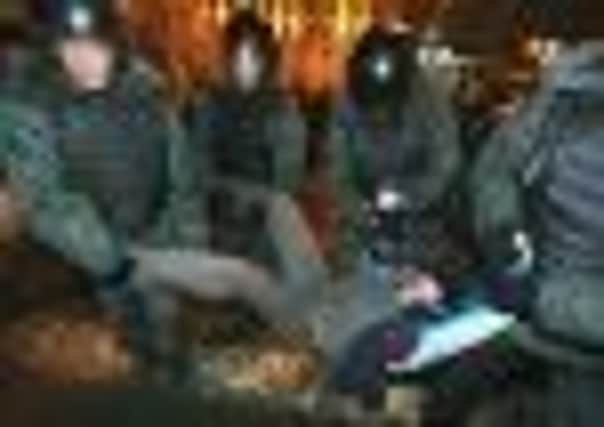Exit polls show Vladimir Putin’s party on course to lose majority


Exit polls suggested that Mr Putin’s party, United Russia, would win 45.5 to 48.5 per cent of the votes in the election to the State Duma, compared with 64.3 per cent in 2007, and that it could struggle even to hold on to a majority in the chamber.
The vote was widely seen as a test of the prime minister’s personal authority after signs that Russians have started to tire of his tough-guy image, built up by his crushing of a rebellion in rebel Chechnya and antics such as bare-chested horse riding.
Advertisement
Hide AdAdvertisement
Hide Ad“Russia has a new political reality even if they rewrite everything,” said Sergei Obukhov, a parliamentary deputy of the Communist Party, which made considerable gains. Its vote almost doubled to around 20 per cent, according to the exit poll.
A United Russia leader, Boris Gryzlov, looked stunned when he addressed reporters after voting ended, but claimed victory and said: “We are watching and hope that we shall get a majority of the mandate in the State Duma. We can say that United Russia remains the ruling party.”
But there can be little to cheer Mr Putin, who has dominated Russian politics since becoming president in 2000. He served in that post until 2008, when he was obliged to step down, the constitution preventing him serving more than two consecutive terms. He was appointed prime minister after his protégé, Dmitry Medvedev, was elected president in 2008.
Official results after about 10 per cent of the votes had been counted yesterday showed United Russia with 45.9 per cent of the vote and the communists with 20.7 per cent.
The exit poll did not make clear how the 450 seats in the Duma would be shared out, under complicated calculations. But one poll projected United Russia – which has dominated the chamber since 2003 – would have only 220 seats.
Mr Putin remains by far the most popular politician in the country of more than 140 million people, but there have been signs that some Russians are wearying of his cultivated strong-man image. “United Russia has lost touch with reality,” said Alexander, 30, a history teacher in St Petersburg.
Mr Putin, 59, is still almost certain to win the 4 March presidential election and could potentially extend his rule until 2024.
Yesterday the former KGB agent looked stern and said only that he hoped for good results for his party as he walked past supporters to vote in Moscow.
Advertisement
Hide AdAdvertisement
Hide AdThe result was also a blow for Mr Medvedev, who is standing down to allow Mr Putin to resume the presidency.
Mr Medvedev, who would take over the prime minister’s office, had led the election campaign. His position could now be in question.
Opposition parties complained of election irregularities in parts of the country and a Western-financed electoral watchdog, Golos, and two liberal media outlets, the Ekho Moskvy radio station, online news portal Slon.ru, said their websites had been shut down by hackers intent on silencing allegations of violations.
Mr Medvedev has dismissed talk of electoral fraud.
Mr Putin has no serious personal rivals as Russia’s leader. He remains the ultimate arbiter between the clans which control the world’s biggest energy producer. But United Russia has had to fight against opponents who have branded the party a collection of “swindlers and thieves” and combat a growing sense of unease among voters at Mr Putin’s grip on power.